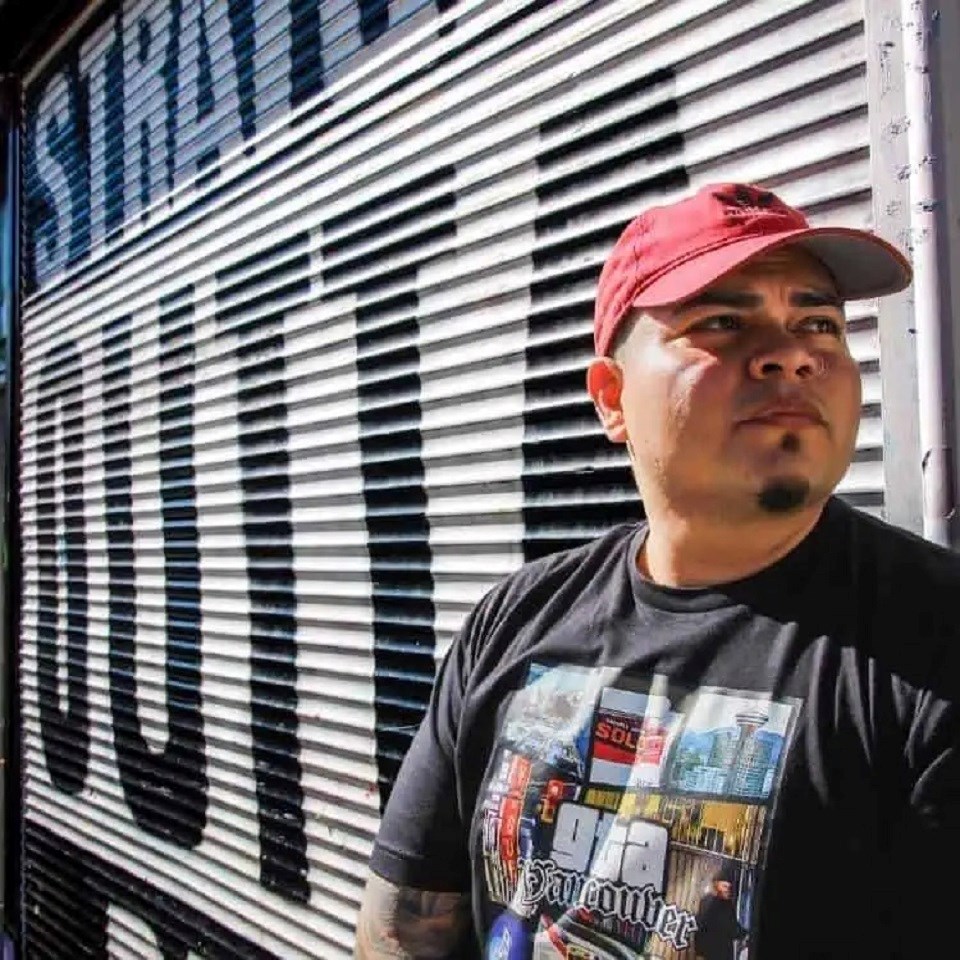Bryant Doradea never thought he would be performing rap songs in the B.C. legislature for a group of provincial ministers.
But when he was invited to share his music and public speaking in advance of BC Child and Youth in Care Week — happening May 29 to June 4 — Doradea couldn’t refuse.
On May 9, Doradea performed a condensed version of his “Foster Kid Survival Guide” — a multimedia performance he created which includes music as well as speaking about his life experiences.
“It was mixed feelings being given such a platform in such a colonial space,” he wrote on his Instagram after the performance last week.
“Nevertheless, I was very grateful to be validated, seen and heard by many who could have easily not shown up and [taken] the time.”
Higher Knowledge
Indigenous to El Salvador and Chile, Doradea grew up in East Vancouver and is a former child of foster care.
After experiencing trauma during his childhood, he said his healing journey began 10 years ago when he started sharing his life experiences through public speaking and performing.
Along with writing spoken word poetry and hip-hop music, Doradea is also a frontline Youth worker and program developer for Youth in and from care.
“I wanted to create visibility, and not just in a negative context, but in a context that shows how intelligent we are, how funny we are, and how resilient and powerful we are,” said Doradea.
His advocacy work and life experiences have culminated into the multimedia performance which Doradea calls “The Foster Kid Survival Guide.”
When he presented the piece for ministers and legislature staff, Doradea — who also goes by the performer name HK (short for Higher Knowledge) — included two songs, including one from his new album The Knowledge of Good and Evil.
In attendance were Children and Family Development Minister Mitzi Dean, as well as the Finance Minister Katrine Conroy and Social Development and Poverty Reduction Minister Sheila Malcolmsen.
In advance of the performance, Minister Dean spoke about the “Foster Kid Survival Guide” in the legislature.
“His performance of the ‘Foster Kid Survival Guide’ is for all interested members,” she said. “It’s really, really fantastic.”
Doradea formerly sat on a Youth advisory council for the Ministry of Children and Family Development.
“One of the most important things to me is creating visibility and validity, to say that we are worthy of investment. We are worthy of support,” he said.
Visibility is key
BC Child and Youth in Care Week was proclaimed by the province in 2011 to recognize and celebrate children and Youth in and from foster care.
During the week, events are held to raise awareness on the barriers faced by kids in care, while also finding ways to recognize and honour their respective experiences.
”We are invisible until the worst of the worst scenarios happen, and then, everyone wants to fight about who’s at fault without any real change happening,” Doradea said.
Doradea said that the cost of change for kids in care to be visible is often death or other negative outcomes.
He said his work has also led him to inspire men and boys to become “modern warriors.”
“I’m really passionate about working with boys and men around some of those toxic aspects of masculinity and patriarchy that we’ve had instilled in us,” Doradea said.
His work has also led to a Youth program in East Vancouver called the Hip Hop Drop. He also helped the Broadway Youth Resource Centre Society in building a recording studio for Youth.
Doradea hopes to write a book one day so young people can access his survival guide outside of his performances.
Doradea’s frontline work has inspired him to also pursue creating a “Foster Kid Frontline Survival Guide.” The guide is meant to support those who are working on the frontlines with kids from care.
“I understand the system and the barriers that frontline workers go through, on so many different levels,” he said.
“It’s similar to the other presentation in that I still use poetry, hip hop and my life story, but I can actually marry the two experiences of my personal life and my professional experience in practical ways that can be used to support people in their [frontline] work.”
Doradea said he’s hopeful that the presentation can support those as they develop their practice working with Youth, kids in care and marginalized communities.
“We don’t just have the ability to be better, or good. We have the ability to overcome and become great, and to thrive.”



